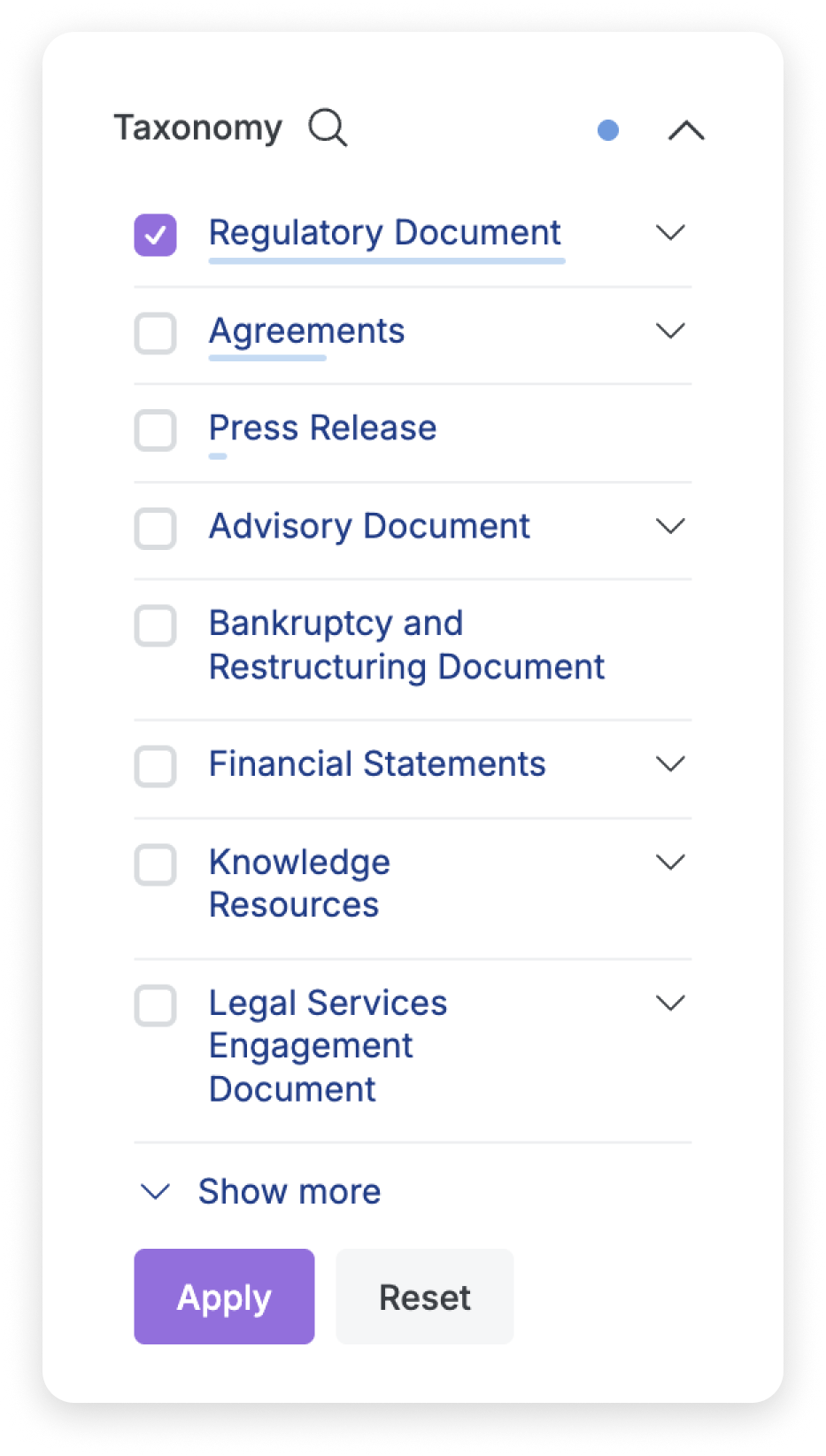
Filters
When and why to apply Filters
The search box allows you to find documents by entering keywords, phrases, or sentences that appear in the document's title or body.
To refine your search based on information not directly stated within the document’s content, such as metadata, use filters. Metadata includes details like the document's author, creation date or last modification date—information that may be important but isn't part of the document’s text.
For example, rather than searching for “share purchase agreement created in the past two months by John Doe”, you should search for “share purchase agreement” and then apply the author filter to “John Doe” and set the date filter to show only documents created within the last two months.
How to apply filters
In DeepJudge Search, you can apply filters in three main ways:
1 Query Box using Autocomplete
Type filter keywords to apply filters directly.
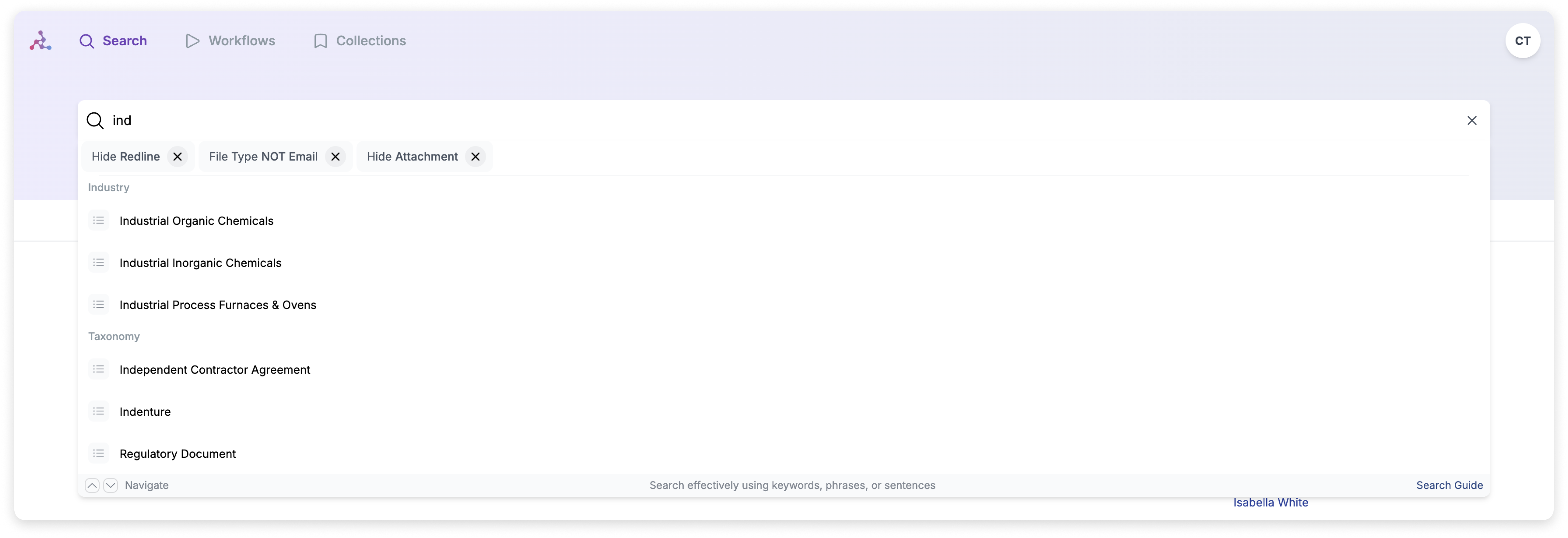
2 Filter Menu:
Access the filter menu on the left-hand side after running a search query.
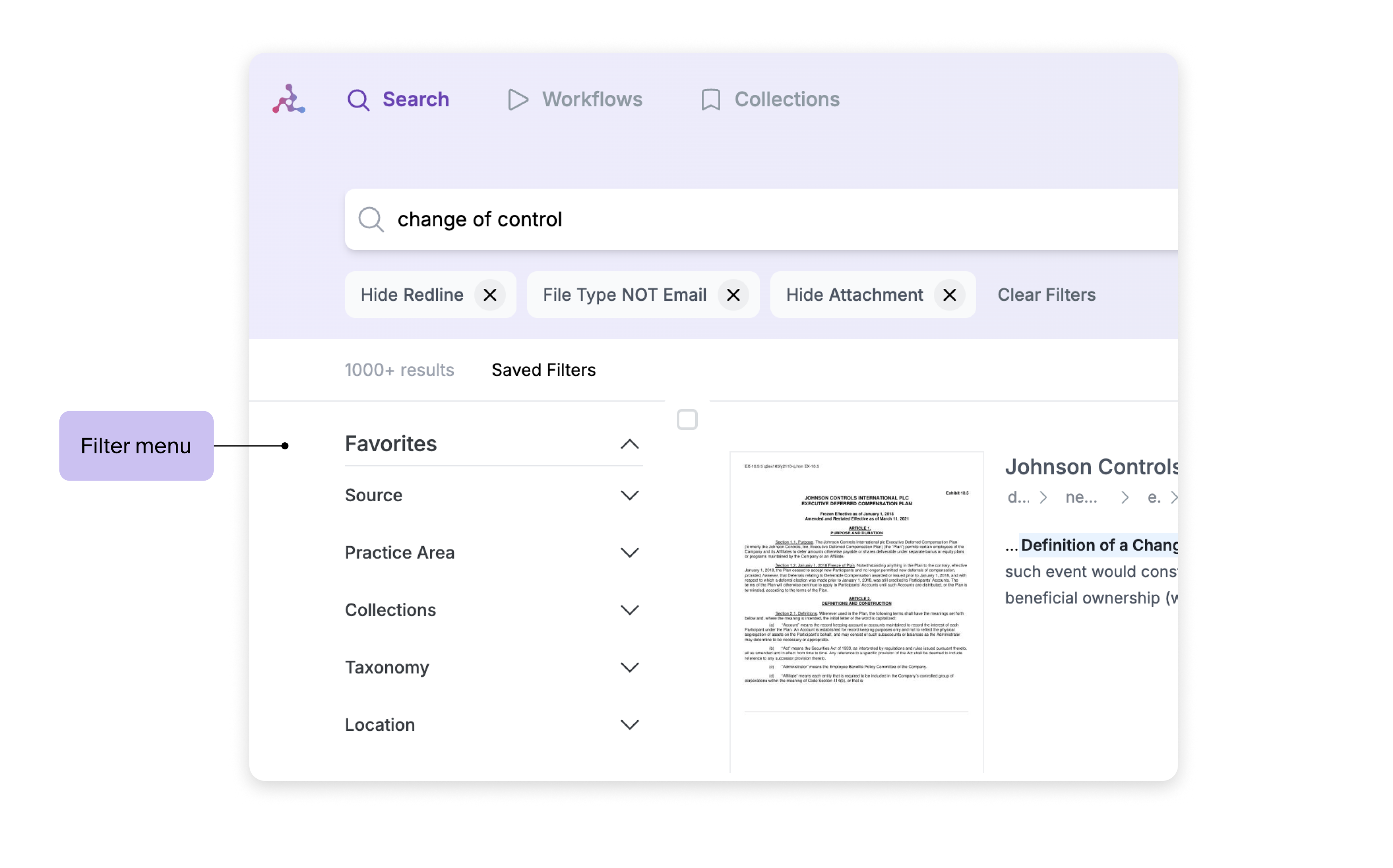
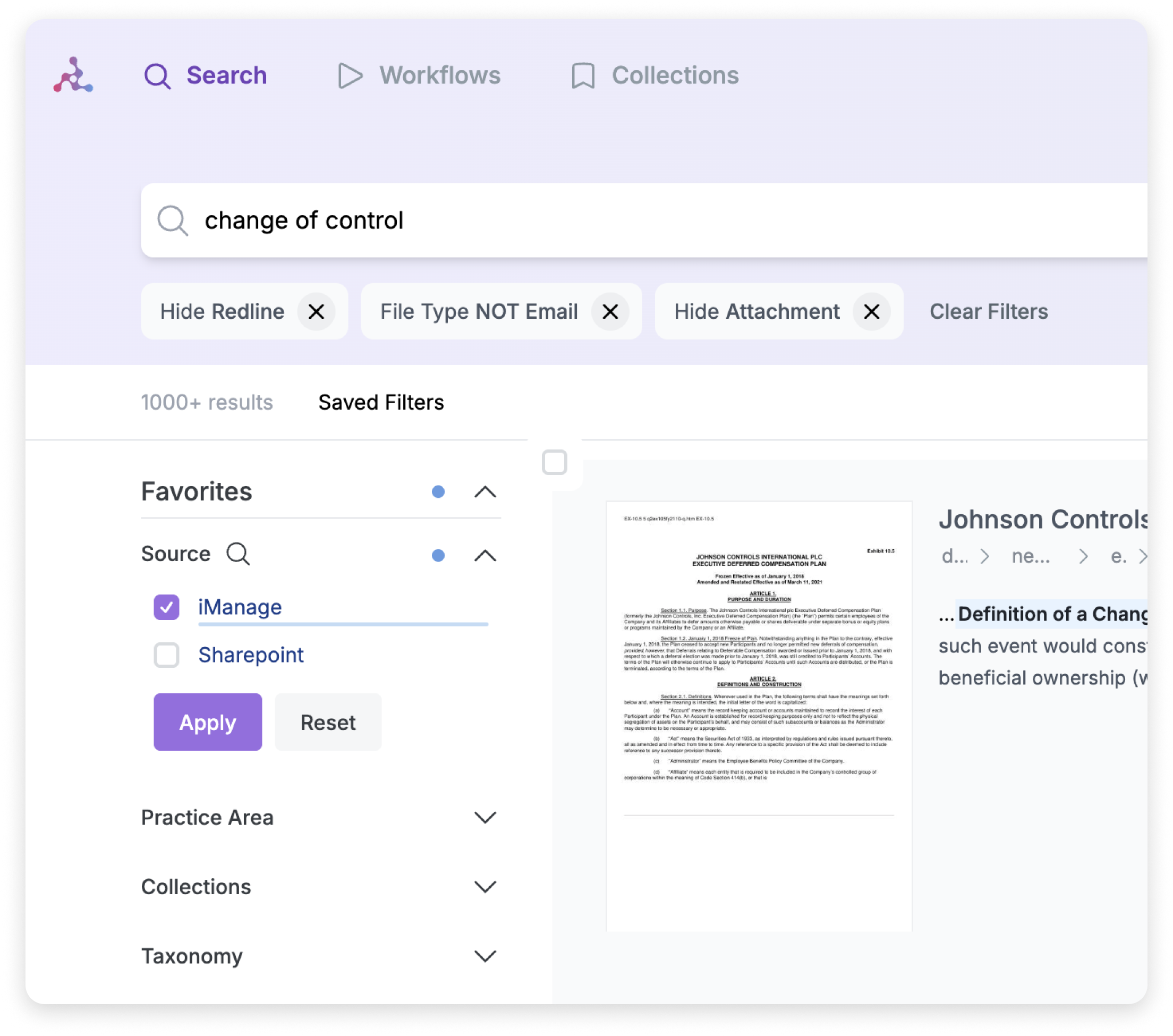
3 Metadata Filters
Turn metadata next to the results into filters by clicking on them.
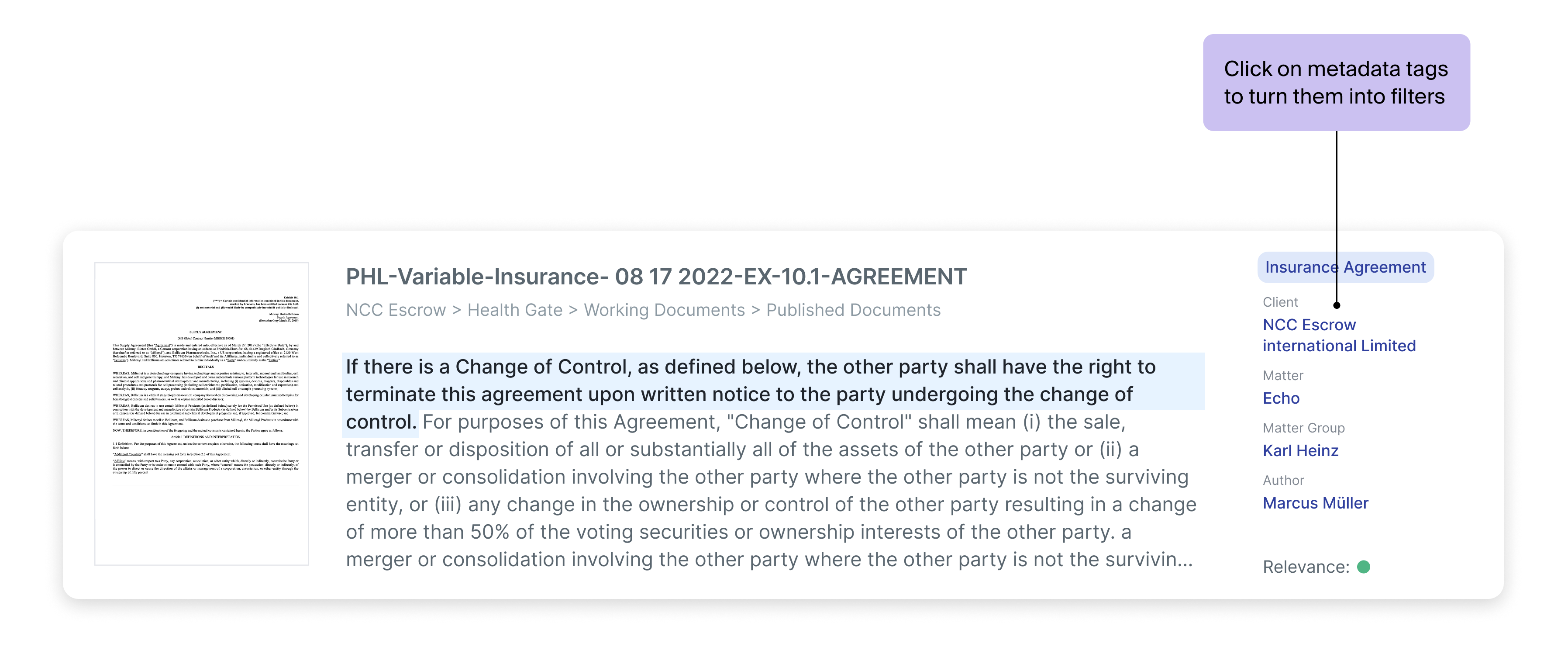
Pre-set Filters
Below the main search bar, you will find filters that are applied by default. For instance, DeepJudge Search automatically detects and excludes redlined documents, email attachments, and emails from search results. You can modify this by clicking the "x" button next to a filter.

Exclusion Filters
Exclusion filters help refine your search by excluding specific criteria from the results. Here's how to use them effectively:
Exclude Specific Criteria
Utilize exclusion filters to remove results containing certain types of criteria. For instance, if you're searching for contracts but wish to exclude those related to "Patent Agreements", use an exclusion filter.
How to apply
To apply an exclusion filter, simply click twice on the checkbox next to the filter. You'll see a minus sign appear, indicating the filter is set to be excluded. Then, click "Apply."
